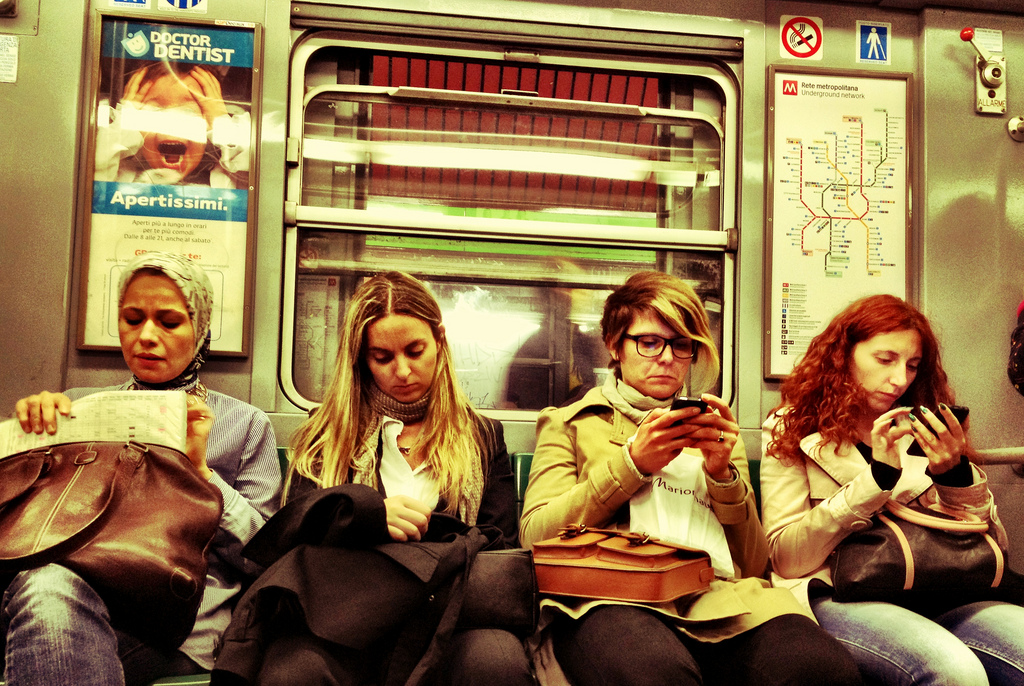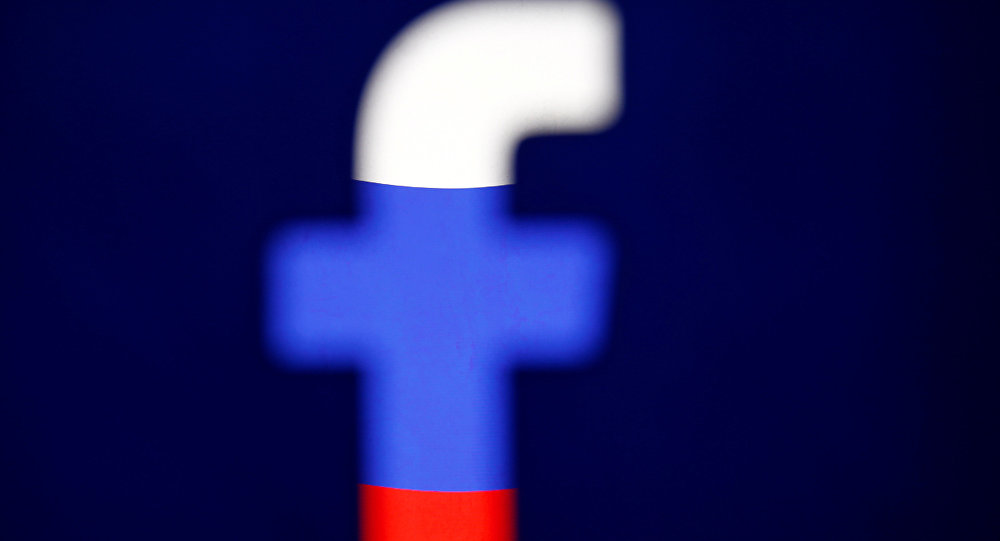Upon the break of the Soviet Union many people were disillusioned and frustrated to have their ideals and beliefs mixed with dirt. Vast majority, on the other hand, felt liberated by a chance to finally shed off the mask of content and forced enthusiasm.
Just like naïve people of the Soviet Empire, we are now being beautifully brainwashed on the wonders of freedom of speech and global connectivity bestowed upon us by the all-encompassing social media.
Indeed, now you can write whatever you want and you can be heard and most importantly liked and praised for whatever it is that you think. You can let everyone know how you feel about something and you can definitely remind yourself on the need to check on your friends that appear online. You know what is happening and who is in. You even know what you should buy thanks to the personalized ad messages. Hey, you are on top of it!
Even more on top are the social media companies and advertisers who use your time, data and emotions to become the invincible owners of the modern-day social order. When we look at the impact of social media in recent American elections, Brexit and numerous others we notice it is the whole political agenda that is masterfully and “involuntarily” controlled. When we see the change in people’s behavior and lack of interaction in real life we now know where this “interaction” is actually taking place.
On the individual as well as interpersonal level, Facebook is used as a platform for the validation of one’s own opinions and beliefs. Referring to our addiction to likes European VP of Facebook, Nicola Mendelsohn, believes that things we like and find relevant to us should definitely have a place in our life.
There are quite a few things that make Facebook usage less attractive than what Facebook executives claim. When discussing the negative effects that social media has on humans, we often mean a dramatic decrease in self-esteem. Chief concerns about the platform is the fact that it can make users feel worse about themselves by inviting negative comparisons with the lives their friends are leading to their own.
However, there is a number of other not so rosy consequences of the platform usage:
“Echo Chamber” Effect
What Facebook really believes in is having you glued to the screen reading the news that support your worldview and build the confidence you are doing things right. Then if you talk to a person having drastically different opinion you can be sure, he is a freak living in parallel reality. Your daily newsfeed definitely proved you are right! Worse even if the “freak’s” newsfeed did the same to him! Why listen to other opinion if yours is being proved every day? What we end up living in is the ecosystem encouraging our biases and exacerbating our intolerance towards other points of view, the phenomenon also known as “echo chamber” creation.
Unsocial Socializing
It is not that we do not care, do not fall in love and prefer to stay in our Internet bubble. We still need interaction, support and a chance to show others our affection. We just happen to be the first generation that has managed to put all the amalgamation of our feelings into an emoji and an omnipresent like button. Why would you waste time thinking what to say when you can simply indicate your interest and support by pushing a button? No matter what you wanted to express, like button is a universal answer. It might indicate that you think a person looks great, you feel good about someone winning a lottery, you support someone’s desire to share a post, you feel it is good to donate money to charity, you want to have the same sporty body or you express solidarity with the #metoo campaign. There is no need to waste words, think of elaborate message to indicate your affection and overcome a barrier to start a conversation. Isn’t a like button a strong enough indication of how we think about a particular person? It’s like a life with a generic gift card. No thoughts, no doubts, no regrets. JPSears has a great video on the universality and meaningfulness of a gift card. Check it out to get a feel of where we are in our everyday social interactions!

Marketing Guinea Pig Role
We were empowered by a free access to a free connecting platform just to learn we are paying for it with our eyes and intellectual freedom. Of course, having a constant attack of relevant content must be a fantastic thing. It’s not like you are being offered to check out Broadway show if you live in Beijing. What a waste of advertising money and your time it would be! Instead, you are continuously being offered loads of things deemed relevant based on your location, likes, aspirations, curiosity and insecurities carefully measured and aggregated by social media’s “Magic Hat”.
No wonder you are offered mindfulness sessions after half of your newsfeed is trashed with apocalyptic predictions and news on another terrorist attack! Mindfulness becomes really relevant!
A recent article, based on a leaked Facebook presentation to an Australian bank, said that Facebook was able to identify teenagers at their most vulnerable, including when they feel “insecure”, “worthless”, “defeated” and “stressed” and aim for those people with targeted ads.
Facebook’s latest invention has been an idea of observing people’s emotions and reactions in a store to help advertisers and store personnel know which customer they should allocate more attention and whom they should focus on to make a sale.
Facebook has clearly found its niche in people’s lives, moving from a lovely goal of unifying humanity to becoming the media and advertising Leviathan of human race.
Negativity Whirl
Dying children in Yemen, mistreatment of animals, horrific climate change and environment pollution, mass extinction of species and an age of terrorist attacks. How often have you felt we are approaching an apocalypse after checking a Facebook feed?
Naturally, people love to attract attention. We also know that no positive news is news. What we end up with is a constant whirl of negativity created by fake news and people posting negative and apocalyptic things to attract more attention. You might be wondering, how is it different from traditional television and broadcasted news? About 2,6 billion people now have an access to smartphone in comparison to 1,6 billion TV owning households. While TV ownership figure will stay roughly the same, smartphone ownership is predicted to soar in next years. Going viral is a very internet-prone quality, which enabled a much more memorable news circulation. Moreover, the number of shares is often defined by the “shock” factor rather than the accuracy of information. And while all the above mentioned plagues of XXI century stay valid, there is an astonishing evidence that the world situation used to be way worse years ago.
The only thing we are left with, however, is a “socially verified” and shared conviction that the world is coming to hell.
Good if you are offered mindfulness sessions after half of your newsfeed is trashed with apocalyptic predictions and news on another terrorist attack! It becomes really relevant!
It’s all not bad and gloom, however! The company is working on its feed in search to make Facebook a happier place, including improving the quality of the News Feed, allowing you to mute bothersome people for 30 days, and make it easier for you to hide posts from your former romantic partners.
There is now a way to partially limit negative exposure if you feel like. No one would think about such a simple solution as leaving Facebook altogether, would they?!
Political Meddling
Elections. This is a big one. According to news sources, 29 million Americans saw trolls generated posts directly in their News Feed over that two-year period. And those users also liked, shared and followed these posts and pages, exposing them to their friends — meaning 126 million U.S. users in total might have seen at least some Russian-generated content, according to a source familiar with the findings. At least 3,000 politically divisive ads were bought by Russia at the time of the presidential campaigns and elections, the company revealed. In fact, it seems like Russia was ridiculously more efficient than US Presidential candidates spending about $100K Facebook advertising dollars in comparison to almost $ 1 bln. spent by candidates.

Authorities in France and Germany have also said their elections were targeted.British officials state they believe British exit vote was influenced by Russia-backed Facebook campaigns.
Facebook has managed to talk its way through, stating that it is not a media company and therefore cannot be that strictly regulated. Statistics, however, says otherwise: In 2016, Pew Research reported 44 percent of American citizens got their news from Facebook.
See It, Say It… Sorted?
It is hard to miss the parallels between Facebook empire and the movie “Circle” with people suddenly realizing the true nature of their affiliation. Just as Emma Watson decided to show the face of the “Circle” so many former executives voice their dissatisfaction with the direction Facebook lately took.
A former Facebook executive is making waves after he spoke out about his “tremendous guilt” over growing the social network, which he feels has eroded “the core foundations of how people behave by and between each other”. Mr. Palihapitiya is not the first Facebook employee to publicly step out and renounce his years in the company.
Recently, Facebook founding President, Sean Parker, stated that both Facebook and Instagram were designed to consume as much of user’s time as possible, giving you a dopamine hit once someone likes your picture or comments your post. He termed it “a social validation feedback loop that exploits human psychology vulnerability”.
More significantly still is the fact that former and current C-level Facebook employees are banning their children from “using this shit”. Clearly, they do not view ‘dopamine-driven feedback loops’ in a positive light. Question is why would you not allow your children to bath in the goodness of a universal connectivity when you have enabled 2 billion people to enjoy it every day? Not sure they see any benefits of using Facebook at all.
It is also clear that more and more people see Facebook not as a daily need but more of an expensive and harmful addiction that can be get rid of. Many of people I know have it only as a storage of old pictures checking messenger once or twice a month.
After all, there are so many ways we can get this short dopamine boost we are craving for. You can get a hobby which ensures people can see the fruits of your work, – get into photography, organize an exhibition, put your pictures on Flickr for people to comment; start a blog, express your opinion and have people expressing their opinion on what you have stated; try amateur acting or modelling to get the compliments and admiration you might need; adopt an animal or found your animal rescue service (homeless people help, education support for disadvantaged children etc), volunteer on community projects; send your parents or grandparents on holidays; write love poems; invest in bitcoin and check the market. None of these things is too difficult or requires any special skills. Some of those are as attention begging as our everyday Facebook activity. Neither of them, however, is as pointless a time waste as checking on your Facebook newsfeed. Each has a purpose and an ability to actively shape your life and interests, be it learning the photography skills, appreciating the nature or discovering new business opportunities. There are so many ways people can appreciate you and your work apart from pushing a like button. Do not settle for minimum! Play big! Get your life rolling!
Now it is up to you to decide: How much does my intellectual freedom cost? Am I willing to give up messaging, electronic photo album and a bunch of events to free up my time and liberate my mind? Will I feel good without likes and approvals from friends and random people? Will I be up-to-date? Will I even matter?































